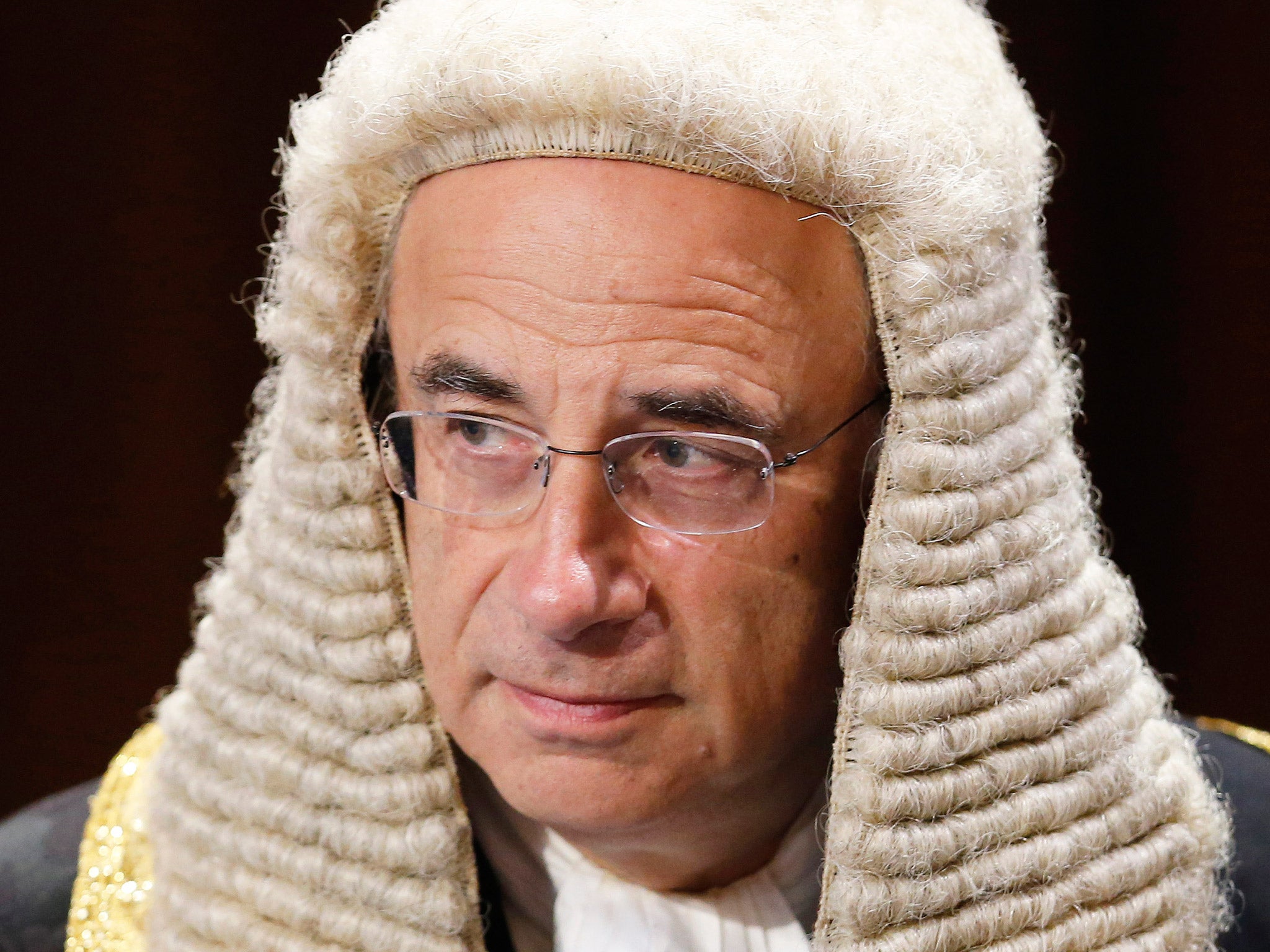Quota for female and ethnic minority judges would be 'demeaning,' says Lord Justice Leveson
Senior judge says quota system would create perception judicial appointments are 'not based on merit'

Attempts to boost the number of women and ethnic minority judges by using quotas would demean those concerned and go against the principle of appointing the best candidates, according to one of Britain’s most senior judges.
Lord Justice Leveson, the president of the Queen’s Bench Division, claims that quotas are the “antithesis of appointment on merit and demeaning whether to women or those from minority ethnic groups.”
During a lecture in the Isle of Man on ‘Justice for the 21st century’, which was published on Monday, he added: “Creating a principle of appointment not because of merit but in order to achieve gender or ethnic balance will inevitably lead to the inference that those appointments are most decidedly not based on merit alone.”
Just one member of the Supreme Court is female, and women only account for around one in five Court of Appeal and High Court judges. Yet while there has been “slow” progress towards equality and diversity, Lord Justice Leveson predicts that retirements will result in a “substantial number” of women judges appointed in the next five years. “Progress will also be made in the area where we do not do anything like as well, namely in relation to black and ethnic minority practitioners,” he said.
In a statement, a Law Society spokesperson commented: “We believe that targets can be an important part of a firm’s approach to equality and diversity and are a route that firms may wish to explore. They can help to break up the habit that positions are always distributed in the same circles. But it is important that targets are not confused with quotas and firms need to be clear that, irrespective of their targets, they appoint the most suitable people for the role, in accordance with the law.”
But quotas are needed to address gender inequality, according to a new study by the London School of Economics (LSE). It recommends that they be made mandatory for senior positions across private and public sectors in Britain to boost the number of women in high-level roles.
Professor Nicola Lacey, professor of law, gender and social policy at the LSE, told The Independent: “My colleagues and I recognise that quotas are controversial. But in the context of the failure of existing policies effectively to tackle the over-representation of men, particularly in the upper echelons of the legal profession, we believe that anyone seriously committed to the gender justice and equality must be prepared to consider a more radical approach.”
She added: “We firmly believe that, where properly handled and properly understood, quotas do not imply any disrespect for either sex, or indeed for particular ethnic groups.”
Subscribe to Independent Premium to bookmark this article
Want to bookmark your favourite articles and stories to read or reference later? Start your Independent Premium subscription today.
